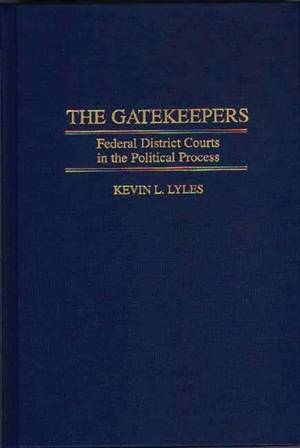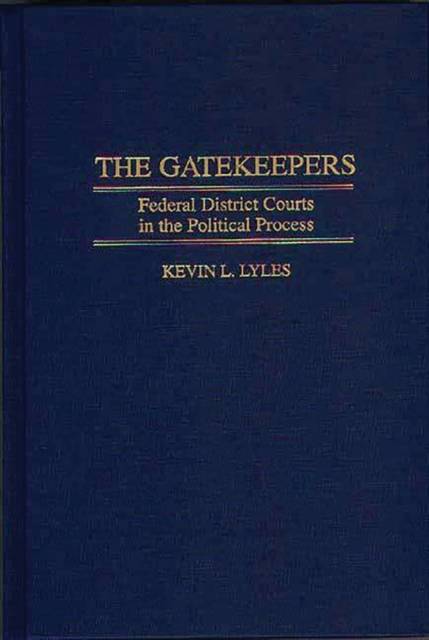
- Afhalen na 1 uur in een winkel met voorraad
- Gratis thuislevering in België vanaf € 30
- Ruim aanbod met 7 miljoen producten
- Afhalen na 1 uur in een winkel met voorraad
- Gratis thuislevering in België vanaf € 30
- Ruim aanbod met 7 miljoen producten
Zoeken
€ 161,45
+ 322 punten
Omschrijving
There are more than 600 Federal district judges serving today, and they decide some 230,000 civil cases each year. About 90% of the decisions they reach are final. Lyles argues that these lower court judges not only influence the flow of information to the judicial hierarchy, but they formulate questions that influence how higher courts, including the Supreme Court, respond. As such they are key elements in the formulation and implementation of public policy. To cite a few examples, they desegregate school districts, run mental institutions and prisons, break up monopolies, and reapportion legislatures.
Lyles begins by examining the structure and function of federal courts and detailing the history, operation, and purpose of the district courts. He then turns to the selection, nomination, and appointment of district judges. Lyles then analyzes the extent to which presidents might advance policy objectives through their judicial appointments to the district courts. After examining how African-American, Latino, and white judges, male and female, view their roles as policy actors, Lyles concludes with a discussion of the implications of the study. Important for students and scholars of contemporary public policy and the court system.Specificaties
Betrokkenen
- Auteur(s):
- Uitgeverij:
Inhoud
- Aantal bladzijden:
- 328
- Taal:
- Engels
- Reeks:
Eigenschappen
- Productcode (EAN):
- 9780275960827
- Verschijningsdatum:
- 28/10/1997
- Uitvoering:
- Hardcover
- Formaat:
- Genaaid
- Afmetingen:
- 162 mm x 239 mm
- Gewicht:
- 675 g

Alleen bij Standaard Boekhandel
+ 322 punten op je klantenkaart van Standaard Boekhandel
Beoordelingen
We publiceren alleen reviews die voldoen aan de voorwaarden voor reviews. Bekijk onze voorwaarden voor reviews.











